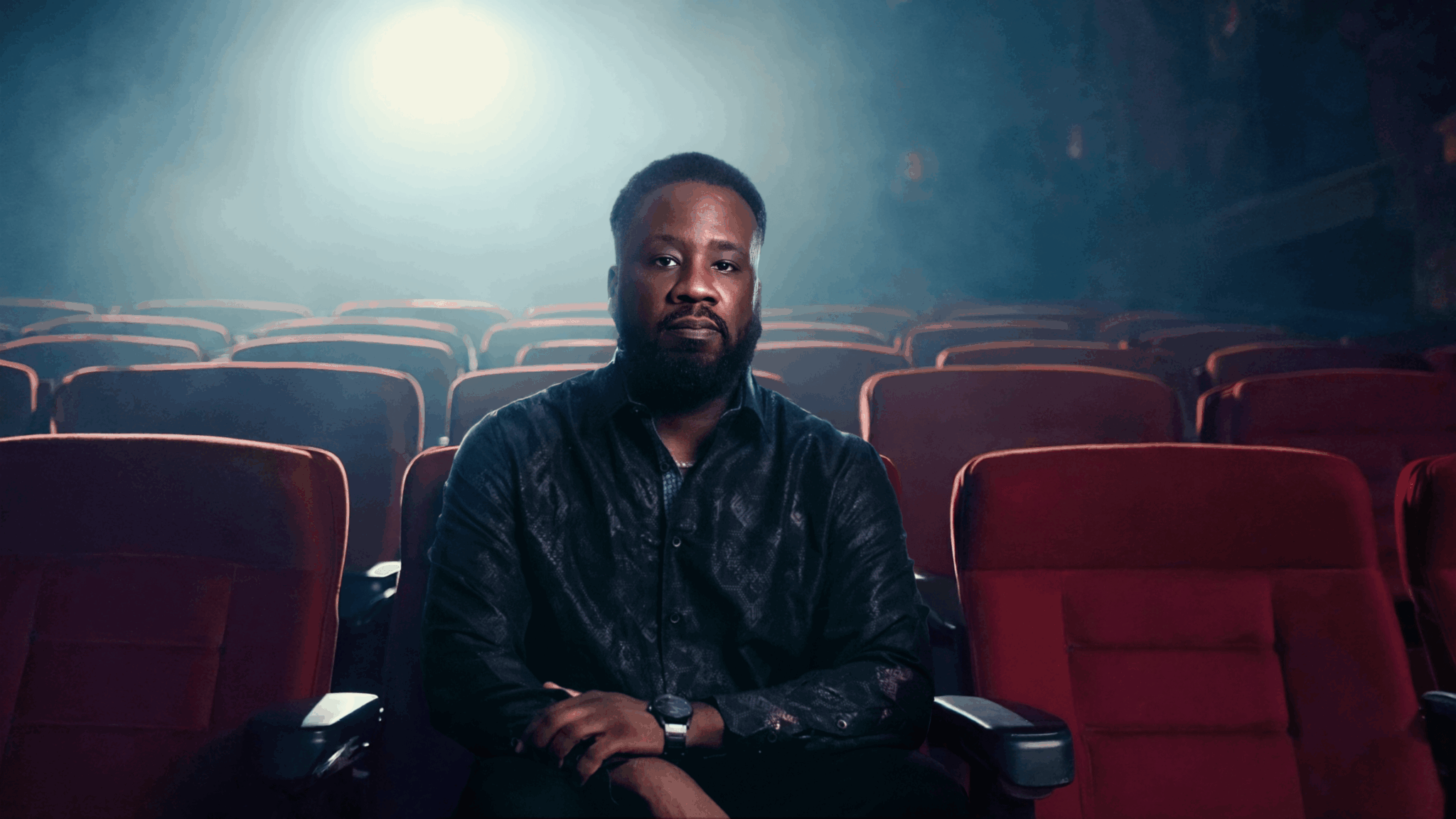We caught up with the brilliant and insightful Max Sainvil a few weeks ago and have shared our conversation below.
Alright, Max thanks for taking the time to share your stories and insights with us today. Learning the craft is often a unique journey from every creative – we’d love to hear about your journey and if knowing what you know now, you would have done anything differently to speed up the learning process.
*How did you learn to do what you do?
My filmmaking journey began in Linden High School in a TV communications class. I believe I was in 10th grade. At that time, I enjoyed watching TV and movies, but I hadn’t thought about creating them myself. One day, our teacher gave us an open-ended assignment: “We have cameras and an editing suite. Make something. It could be a PSA, a commercial, a short film, whatever you want.”
Not really thinking about the assignment, I went home to do my usual thing of watching my favorite TV show, New York Undercover. And it hit me. I wanted to create my own version set in my hometown of Linden, New Jersey. I called it Linden Undercover. I pulled together friends and family, writing the story on the fly, directing them, filming in different locations, and experimenting with different camera angles. It was just all-around fun creating it together. I fell in love with the process. Directing actors, telling a story visually, and bringing it to life piece by piece.
After filming, I’d head to the editing suite, carefully cutting scenes together, adding music and sound from existing scores to heighten the emotion, and crafting the story into something complete.
When presentation day came, it felt amazing to watch my classmates laugh, engage, and applaud at the end. What I didn’t know was that my teacher had secretly submitted my short film to a festival a few weeks after I presented it to the class. Months later, she pulled me aside and told me what she did, mentioning that I had won first place. I was so excited, I ran home and told my entire family… and I didn’t even know what a film festival was. I was just excited that I won something from what I created and worked hard on. At the festival ceremony, my name was called to come to the front and accept the award. Peter MacGregor-Scott, the producer of Batman Forever(1995) and The Fugitive(1993), handed me the award, shook my hand, and said, “Shoot for the stars and you’ll go far in life.” That moment sealed it for me. I wanted to be a film director.
From there, I went to college to study my craft and later worked on sets. I’ve worked on everything from music videos to feature films, starting as a PA and working my way up. I learned a great deal by observing seasoned professionals, mentally replaying what I saw, and studying how it all came together.
*Knowing what you know now, what could you have done to speed up your learning process?
If I had understood the power of networking earlier, I think I would have gone much further, much faster.
In college, I learned the craft of filmmaking and excelled so much that when I graduated, I thought my phone would be ringing off the hook with projects. But weeks turned into months, and months into years, and the calls didn’t come. I couldn’t figure out why until a friend told me, “You need to network.”
At the time, I didn’t fully understand what that meant. College never taught me about networking. My friend broke it down, explaining that being in rooms with like-minded people, having conversations about what you love, collaborating, and building relationships is just as important as talent. If I had known that early in my career, I believe many opportunities would have come my way much sooner.
*What skills do you think were most essential?
My strongest skill is taking words on paper and visually bringing them to life. I often read scripts for films I haven’t seen, imagine how I would direct them, and then compare my vision to the final Hollywood version. Sometimes I even prefer my own interpretation, but more often, I learn from the greats, which strengthens the way I envision stories.
Another essential gift is adaptability. On set, time and resources can change quickly, whether we are losing daylight, behind schedule, or facing unexpected setbacks. I can quickly adjust the story without losing its heart, keeping the production on track.
I’ve also worn many hats: PA, 1st AD, gaffer, cinematographer, producer, director, editor, and writer. That diversity of experience has made me a stronger, more versatile filmmaker who understands every part of the process. It’s almost like in Transformers, when all the Cybertronians come together and combine their bodies into a single machine to create one powerful force. That’s how I feel as a filmmaker.
*What obstacles stood in the way of learning more?
As an immigrant born in Guadeloupe to Haitian parents who came to America with nothing, I watched my family face challenges just to stay afloat. My mother, a single parent, raised three kids while working double shifts, so our resources were very limited. We didn’t come from wealth or have any industry connections, which meant I had to figure out how to navigate filmmaking while also figuring out how to live and work. Financial limitations made it difficult to create the stories I envisioned, and access to mentors or networking opportunities was limited where I grew up.
Still, I’ve always had the drive to find a way forward in learning more. I see my journey like running a race where my lane is filled with potholes and walls, while other lanes are clear. Instead of letting that stop me, I find a way to jump over, go around, or break through every obstacle in my path.
As always, we appreciate you sharing your insights and we’ve got a few more questions for you, but before we get to all of that can you take a minute to introduce yourself and give our readers some of your back background and context?
I came to this country when I was around five years old. French was my first language. I learned English through school and a whole lot of television. Film and TV became my refuge, and I did not know it then, but those hours were shaping my future as a filmmaker.
During my childhood, there was always that one teacher who made a big impact on my life. It felt like they were all connected and meant to guide me toward this journey. In elementary school, Mr Robello pulled me aside, opened my world to the internet, and told me he would connect me with Mr Delmonico when I reached middle school. When I got there, Mr Delmonico taught me how to shape a story with early slide software and said he would connect me with Ms Johnson once I entered high school. When I finally arrived, Ms Johnson welcomed me into the TV communications program. That is where things began to bloom and where I found my voice.
Filmmaking is how I speak to the world. I am not a motivational speaker and I do not stand on political stages, but I believe stories can shift how people think, open eyes to hard truths, and bring people closer. I create films rooted in drama, identity, and social issues. Some stories are complex and layered, others are simple and clean, but every choice is intentional and centered on connection.
What sets my work apart is the blend of vision and resourcefulness. I stay involved in every stage so the heart of the story is protected from the first page to the final cut. I am calm under pressure and, when resources are limited, I find creative ways to achieve the same feeling without losing the soul of the scene. Being diverse as a filmmaker adds tremendous value, allowing me to step in where the story needs me most. A recent example is the TV series <i>Sincerely, Love</i>, written and created by Dennis ‘DeWill’ Williams and executive produced by Antoinetta Hairston-Stallings and German Valle. I was invited to direct and edit the pilot, working alongside a multi-talented crew that was hands-on, committed to quality, and trusted me throughout the process. Their dedication pushed me and taught me a great deal, and together we kept the vision sharp and the story intact from start to finish. The combination of directing and editing also helped me when time was limited, because it allowed me to mentally edit as we filmed, capturing exactly what we needed, no more and no less. That approach not only supported me as a filmmaker but also strengthened the entire production, proving what can be achieved when trust, collaboration, and resourcefulness come together to deliver a focused and powerful pilot under pressure.
I am most proud of a limited series I wrote during a 30-day retreat in the mountains of Jamaica this past spring. I removed myself from all distractions and wrote surrounded by birds, goats, chickens, and wide open views of water in the distance. No social media, no internet. Just me, my pen, and a few lizards roaming the ceiling, trying to take a peek at what I was creating. In that stillness, I poured myself into a story that moves between the past and a near future shaped by advanced technology. It explores hidden history, identity, and the fight for truth. This is my boldest and most personal work, and writing it felt like stepping completely into who I am as a storyteller.
If there is one thing I want readers, collaborators, and future partners to know, it is this: my commitment is to tell stories that connect people across different experiences and perspectives, and uncover truths that heal and unite. Independent voices can reach the world now. I see that open door, and I plan to walk through it with stories that matter.
We’d love to hear a story of resilience from your journey.
This was in my early years as a filmmaker, when budgets were tight and every opportunity felt like it could change my career. I had been invited to Miami to direct a feature film, and a New York production company had promised me a full RED camera package free of charge.
Two days before my flight from New Jersey, I got the call. The RED package had been pulled for a bigger production, and there was no budget left to rent another cinema camera. For a moment, I felt sick to my stomach. This was supposed to be my big moment, and now I was expected to show up without the gear we had planned for.
But giving up was never an option for me. I decided to bring my own Panasonic GH2, which was all I had at home, lying around collecting dust. It was a camera worth under $500 compared to a $60,000 RED camera package. I had been following filmmaking communities online and knew about a special firmware hack that unlocked much higher bitrates and better image quality on the GH2, so I installed it before leaving for Miami.
On set, I shaped the light with what was available, framed every shot with care, brought out the best performances from my actors, and pushed the GH2 to its limits. When the final cut was screened, people kept asking what high-end camera we used, assuming it had been the RED or something similar. When I revealed that it was a camera worth under $500, they could not believe it.
Now, being on a film set with a whole crew, watching my DPs work with the Arri Alexa or the Sony Venice 2, it always brings me back to that early moment. That project taught me that resilience is not just about surviving a setback… it is about finding creative solutions, making the most of what you have, and still delivering work you are proud of. And it also reminded me that no matter what camera you use… whether it’s a high-end cinema camera, a cell phone, or even a webcam… as long as you can capture images with or without sound, there is always a story worth telling.
What’s the most rewarding aspect of being a creative in your experience?
For me, the most rewarding part of being a filmmaker is knowing that a story can stay with someone long after the credits roll.
Before I ever picked up a camera, I used to watch a lot of films with friends. Some of those films were fun in the moment, but once they were over, there was nothing to talk about. We might spend five or ten minutes on them before moving on to another topic. But every now and then, we would watch a film that was deeper, something layered, something that made us reflect. We would sit for over an hour, picking it apart, connecting it to our own lives, and discussing how it had changed or could change our perspectives and choices. Those conversations stuck with me.
Now, as a filmmaker, that is what I aim for. I want to create stories that spark those same kinds of discussions, the kind you carry into your life and maybe even let influence the way you see the world. The most rewarding moments are when I can feel that connection happening, whether it is an audience member sharing how a scene spoke to them, or being on set when the actors, crew, and story are all in sync and we know we are making something that will mean something to people. That is what makes all the work worth it.
Contact Info:
- Instagram: https://www.instagram.com/maxsainvil/
- Other: IMDb: https://www.imdb.com/name/nm3527007/ email: [email protected]
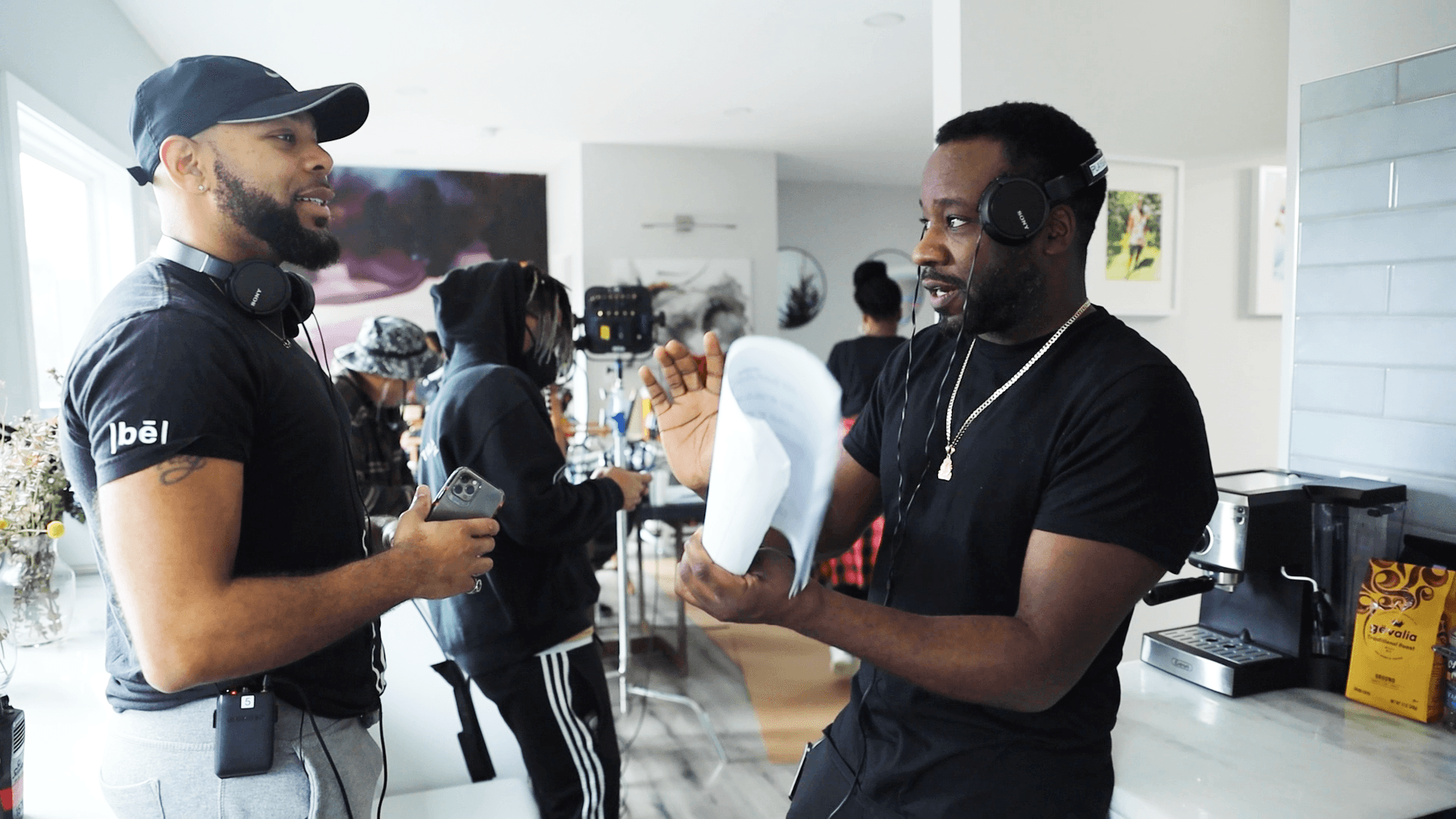
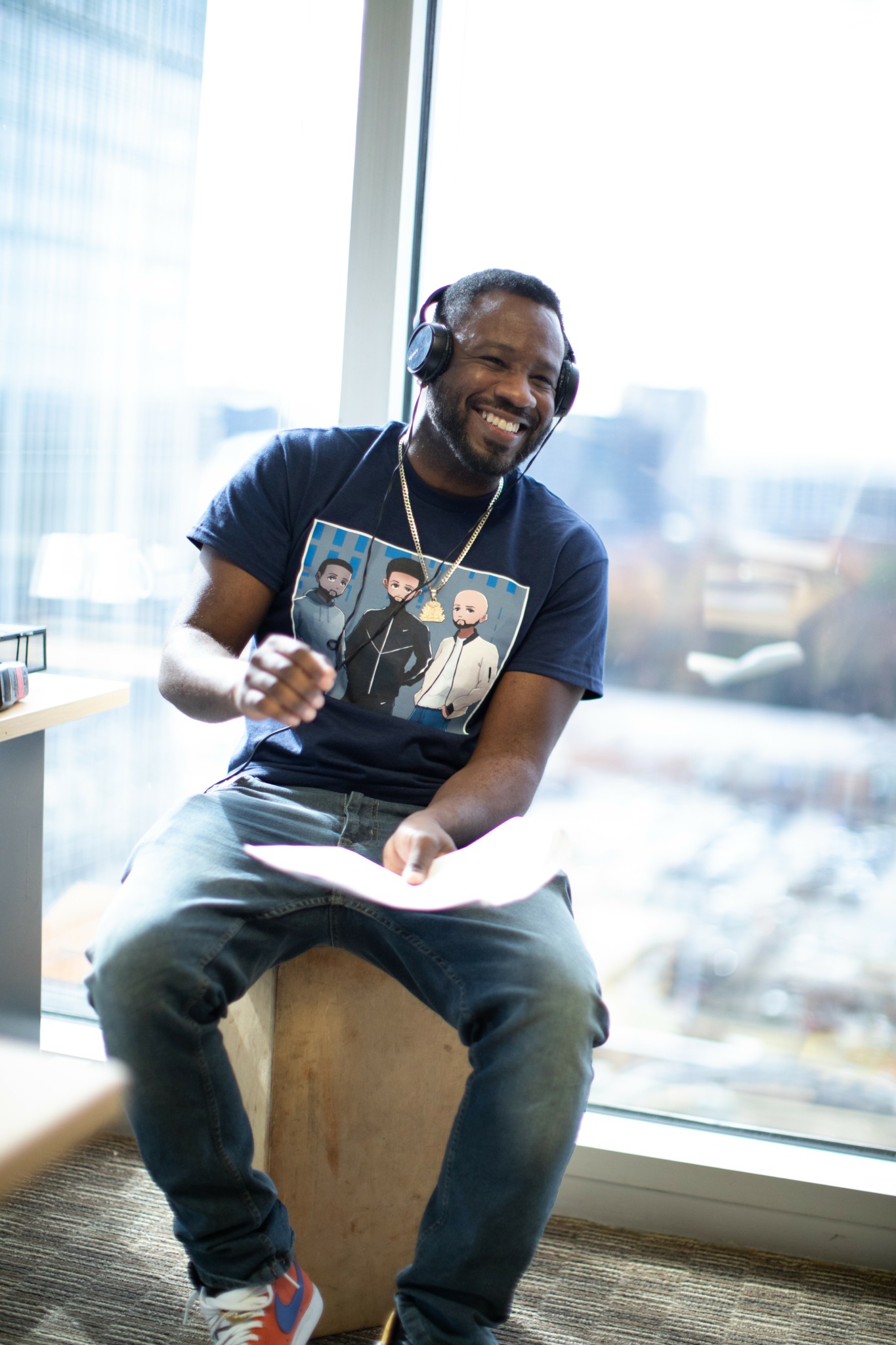
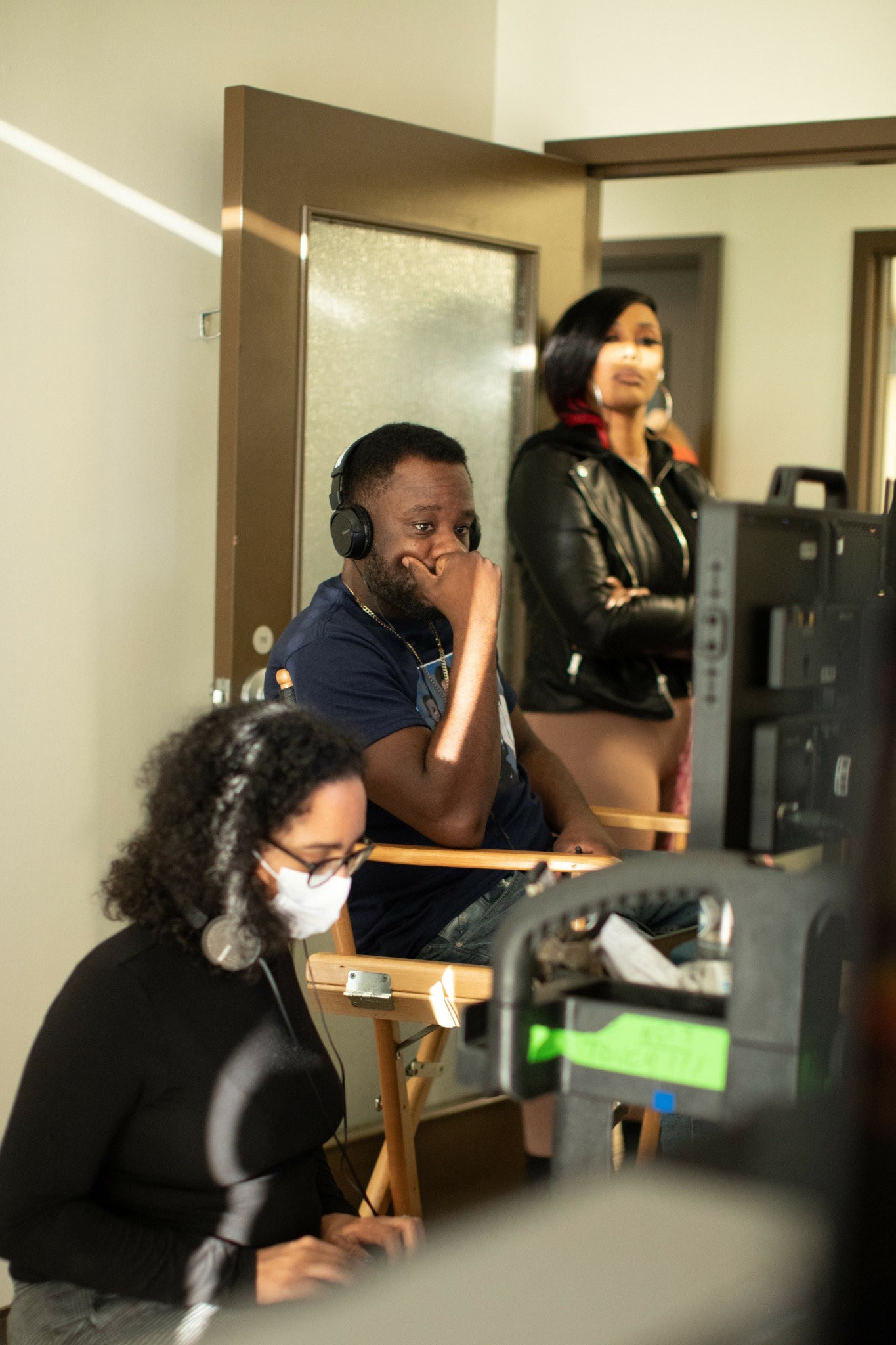
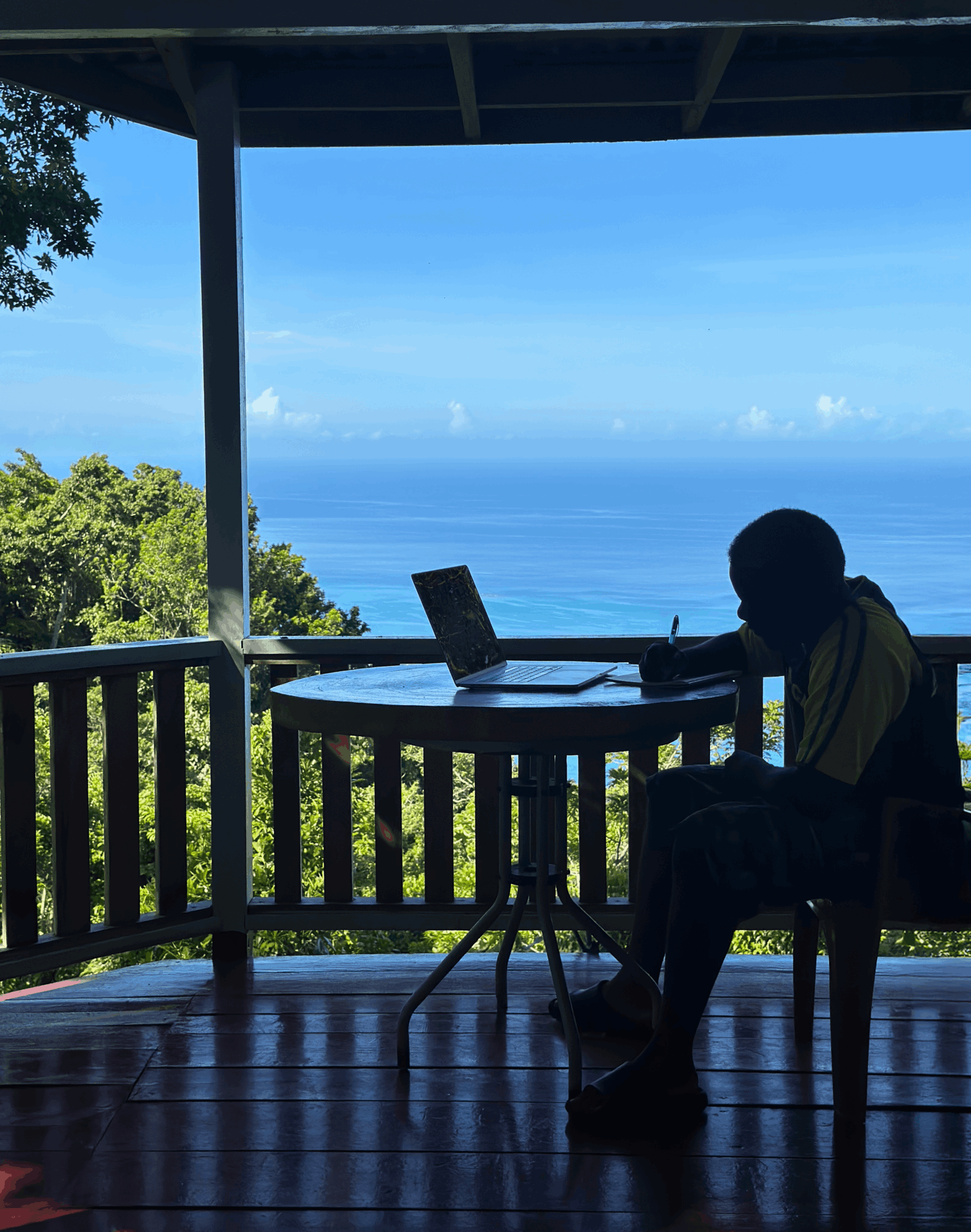
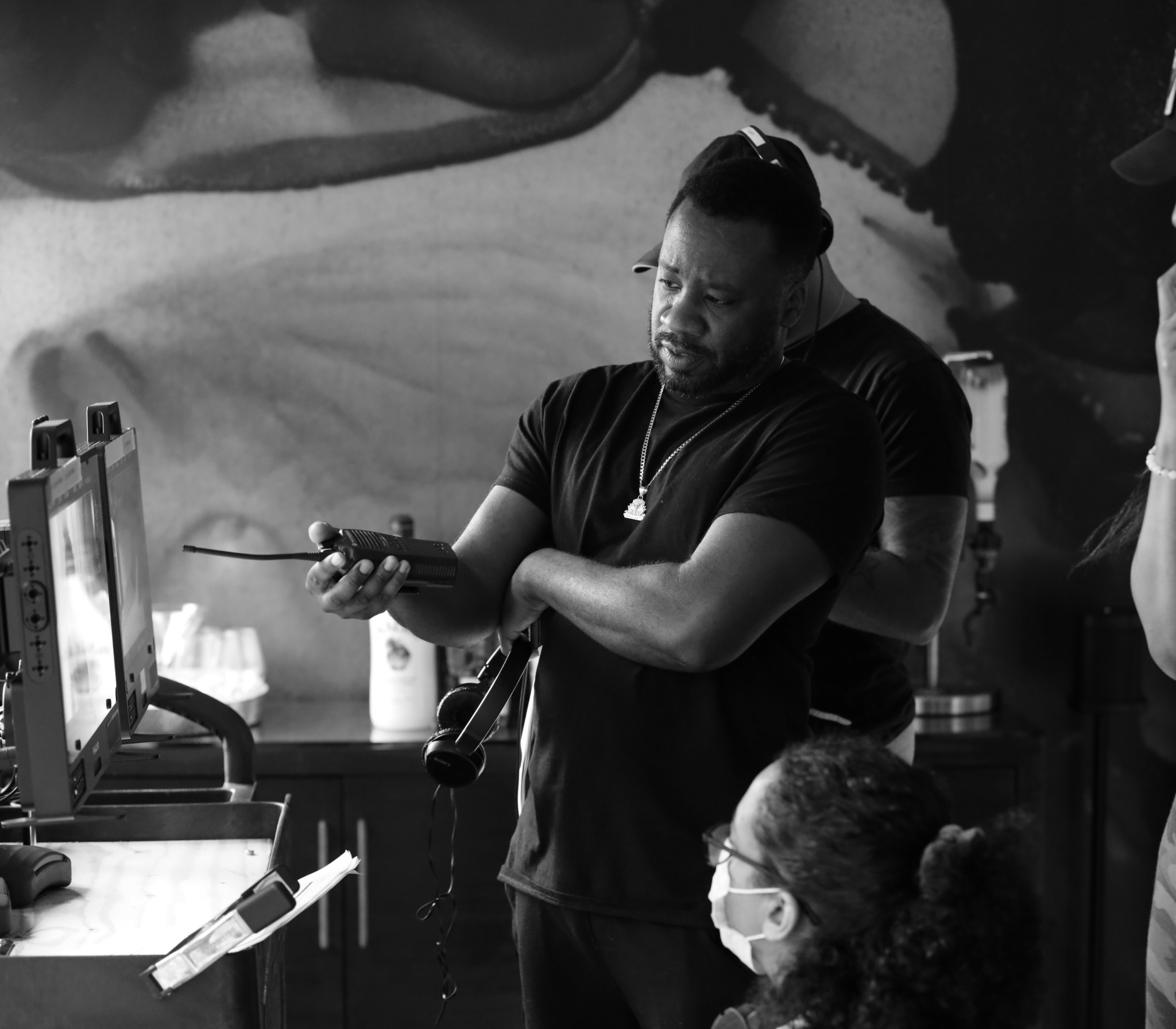
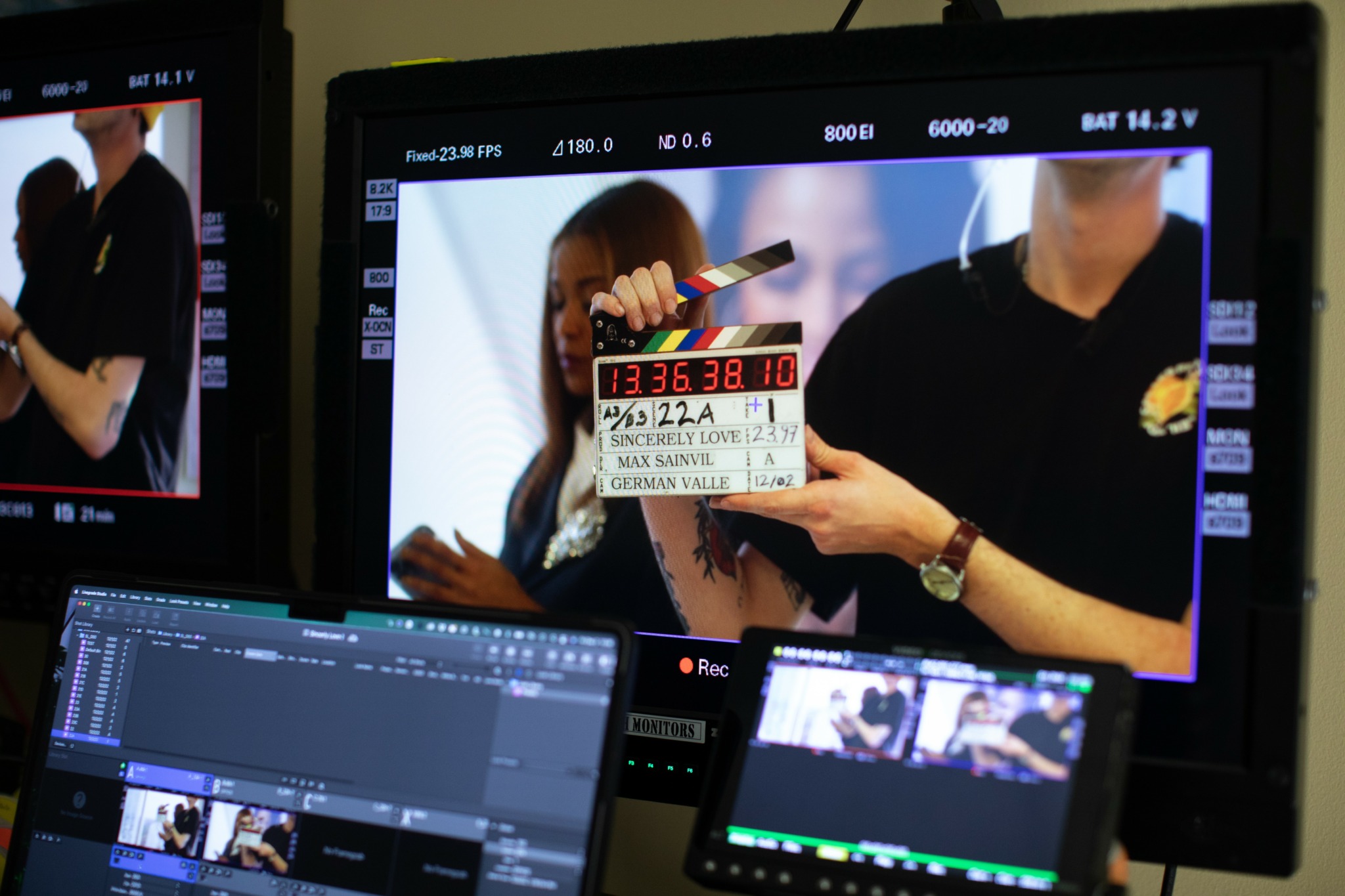
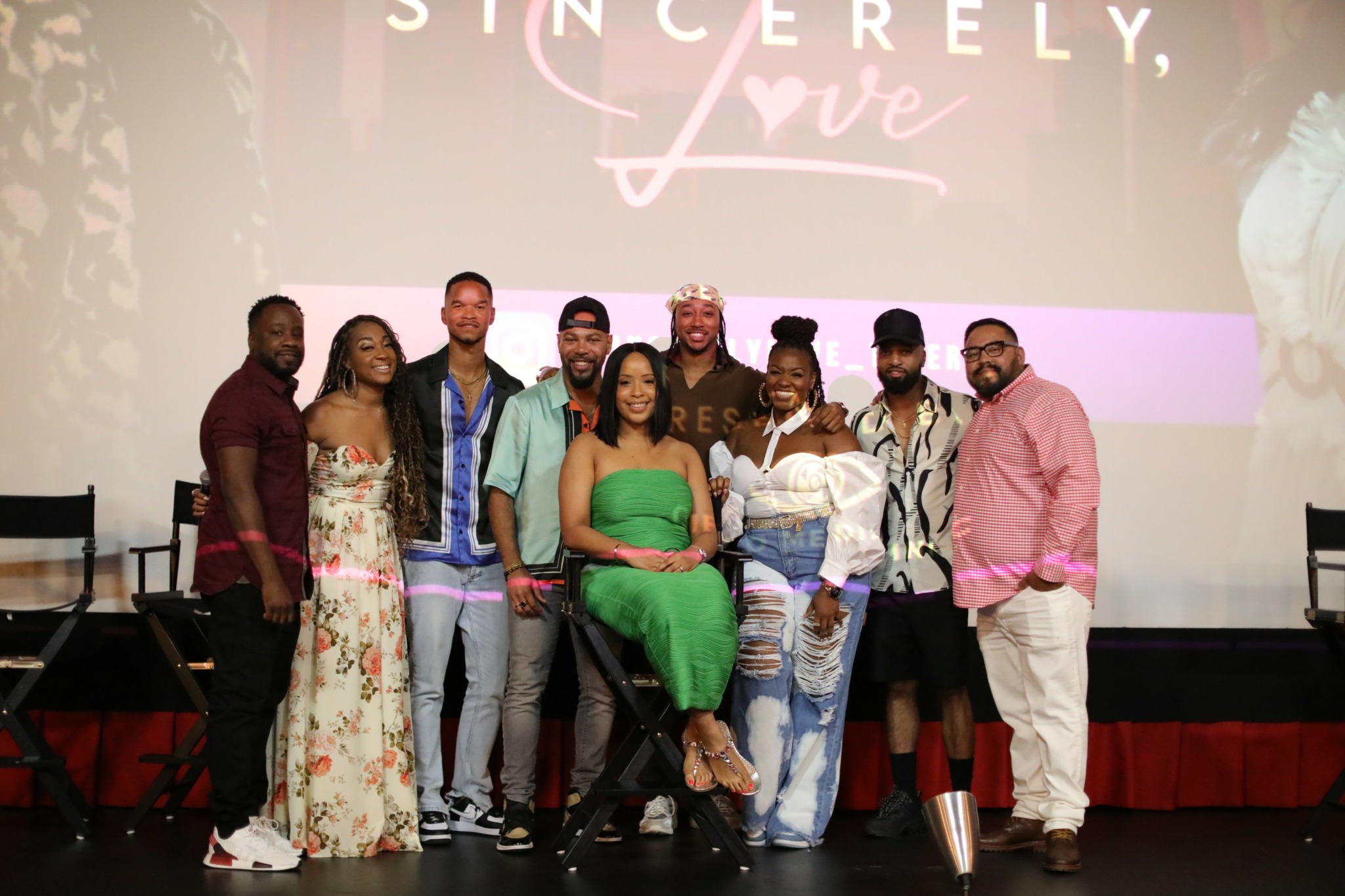
Image Credits
Gifted Media, INC


